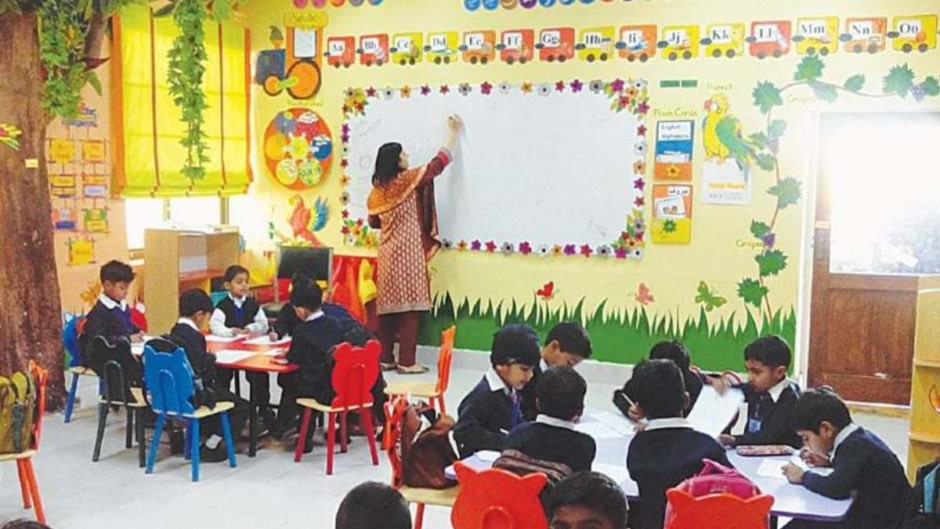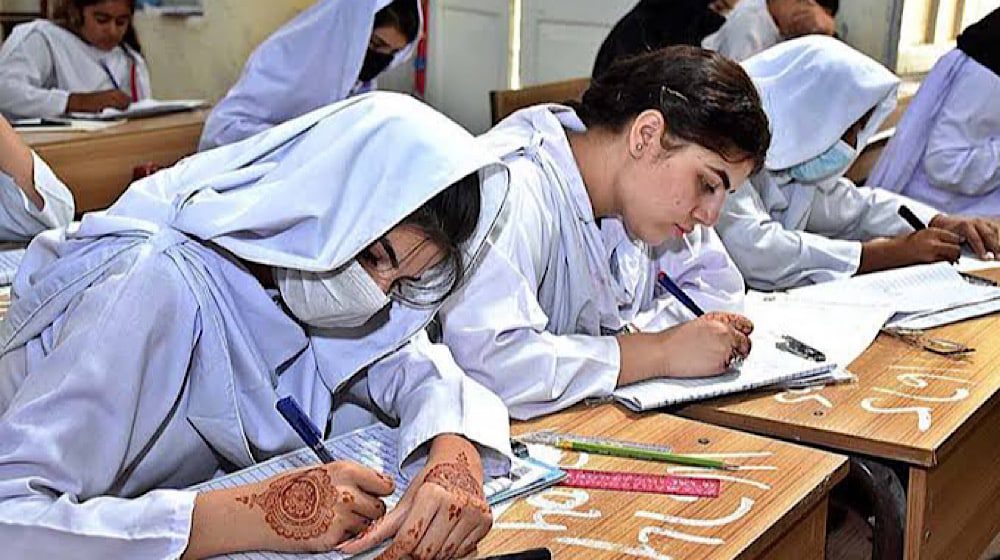A major policy decision announced by the Punjab School Education Department has generated a lot of discussion throughout the province. The government has taken the audacious decision to prohibit all government teachers from being employed by private schools and academies in an effort to raise the quality of instruction in public schools. Officials say the new rule is intended to make sure teachers focus entirely on students taking classes in government schools instead of splitting their time between several jobs. Authorities have issued a warning that severe disciplinary action will be taken for any infraction of the policy.
There have been conflicting responses to the announcement. While some, especially teachers, are worried about the potential financial difficulties. This policy may cause many parents and education activists to see the decision as a much needed reform to raise the standard of instruction in government schools. This action has brought attention back to the difficulties facing Pakistan public education system and the precarious equilibrium between teacher financial security and educational reform.
Why the Ban Was Introduced
For years, reports have surfaced about government teachers dividing their attention between their official duties and private tuition centers or academies. In many cases, teachers were found conducting private classes during official school hours, leaving government classrooms understaffed or neglected. This not only affected students’ learning but also contributed to the already declining results of public schools in Punjab.
The Punjab Education Department has argued that teachers must treat their government school responsibilities as their top priority. Authorities observed that many teachers seemed more dedicated to private schools and academies, as these provided them with additional income, often at the cost of neglecting government students. By enforcing this ban, the department aims to ensure that teachers spend their energy and expertise where it is most needed: inside the classrooms of government schools.
Education experts note that the performance of government schools has been under scrutiny for years. In several districts, matriculation and intermediate exam results have shown alarming trends of declining success rates. The department believes that by restricting teachers from engaging in outside employment. They can bring back focus, discipline and accountability to the public education system.
Monitoring and Accountability Measures
This new policy will be closely watched the Punjab School Education Department has stressed. Reporting infractions has been left to district education officers and school administrators and teachers who fail to comply may face harsh disciplinary action.
Officials have highlighted that the monitoring system will track teachers attendance but also their professional engagement with students. This includes lesson delivery, classroom participation, and the overall academic progress of students. The department clarified that the purpose of these measures is not to punish teachers unnecessarily. But to reinforce the importance of their roles within government institutions.
Penalties for violating the ban may range from warnings and salary deductions to suspension or even termination in severe cases. The department insists that such accountability is necessary if government schools are to compete with private institutions and provide a fair chance for students to succeed.
Financial Concerns of Teachers
- Although the government frames the ban as a student-focused reform, teachers’ unions and associations have voiced strong objections.
- For decades, private schools and academies provided supplementary income for government teachers, especially junior staff whose salaries were considered insufficient.
- Teachers argue that:
- Government pay does not cover rising living costs.
- Evening academies and private schools offered financial stability.
- The ban could lead to financial instability and demotivation in their professional duties.
- Government pay does not cover rising living costs.
- Education unions have suggested alternatives instead of a complete ban, such as:
- Enacting rules to prevent conflicts during official school hours.
- Allowing teachers to teach privately after working hours.
- Enacting rules to prevent conflicts during official school hours.
- If their concerns are not addressed, some union leaders have made references to potential protests or demonstrations.
- In the absence of improved compensation, benefits, and chances for career progression unions warn that such restrictions may discourage fresh talent from entering the public education sector.
Public Response to the Ban
The new policy has received a lot of support from parents of students attending government schools. Many had long grumbled that teachers appeared more dedicated to private institutes where they charged fees than to public schools. As a result of the ban parents now expect their children to perform better academically, attend class more frequently and receive more attention.
Parents of students attending private schools and academies, however, are concerned about how this will affect their kids academic performance. Since many government instructors are regarded as having extensive experience and expertise. Thousands of students may not be able to prepare for exams if they are absent from private institutions.
Although the government intentions are admirable, education experts think more needs to be done to guarantee the policy success. Teachers may stay motivated and refrain from looking for other employment if professional development programs are strengthened, teacher pay is increased, and incentive programs are implemented. The prohibition might cause conflict rather than advancement if these issues are not resolved.
The Larger Picture: Reforming Education in Punjab
- The Punjab Education Department’s decision highlights a broader issue in Pakistan education system: balancing quality with accessibility.
- Government schools remain the primary source of education for millions of children, especially from low income families.
- These schools face ongoing challenges such as
- Outdated teaching methods
- Lack of resources
- Inconsistent teacher attendance
- Outdated teaching methods
- The ban on government teachers working in private schools and academies aims to restore focus and discipline in public schools.
- For long term success, the reform must be supported by structural improvements, including
- Modernizing curricula
- Investing in teacher training
- Increasing financial resources for government schools
- Modernizing curricula
- With these improvements government schools could regain credibility and compete with private institutions in terms of both results and reputation.
ParhloPakistan: Supporting Students with the Right Resources
Parents and students frequently search for trustworthy platforms to stay informed and locate useful study materials during periods of educational reform. Parhlo Pakistan is essential in this situation. Students can access past exams, study materials, test-taking advice, and instructional updates on our website to aid in their efficient preparation. By offering well organized resources for a range of boards and subjects, Parhlo Pakistan has made a name for itself as a trustworthy name for students wishing to improve their academic standing. Given these recent developments, programs like Parhlo Pakistan are even more important. We ensure that students to receive excellent support outside of the classroom.
Conclusion
A bold move toward public education reform was made by the Punjab Education Department when it decided to prohibit government teachers from working in private schools and academies. The action has been praised by parents and educational organizations. There are legitimate worries about teachers financial security.
The effectiveness of this policy implementation and whether the federal government takes steps to address the financial difficulties teachers face will be key factors in its success. The prohibition might result in a major improvement in the standard of instruction in public schools if it is coupled with increases in teacher pay, training initiatives and school supplies.
In the end the policy is a reminder that committed educators, driven learners and helpful resources are the cornerstones of a robust educational system. For Punjab’s education sector to advance successfully these factors must be balanced.




